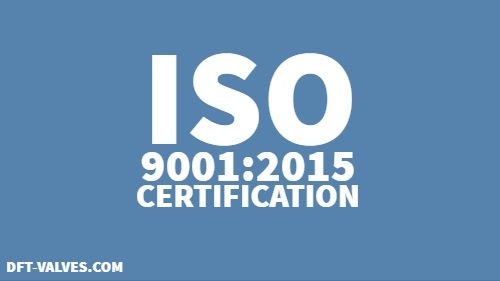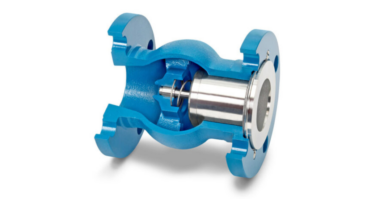In the industrial world, achieving quality certifications is a vital part of earning customer trust; not only does this illustrate DFT Valves’ commitment to constant improvement, it also shows the market that DFT products are of the highest quality possible.Certifications demonstrate that DFT Valves’ products have met a stringent set of requirements as set forth by the specific certifying organization at hand. These certifications serve to benefit you, as well, ensuring that all of DFT Valves’ operations are consistent and reliable and yield products that are uniform and high-performing — thereby eliminating the need for unnecessary expenditures, labor, and downtime.This kind of quality guarantee can be essential for building lasting customer relationships. DFT Inc. has worked hard to earn high-level industry certifications, including their latest, ISO 9001:2015. This commitment serves to enhance DFT’s product and industry knowledge, and also allows DFT to implement the most cutting-edge procedures and production processes.
Understanding ISO 9001
The ISO 9001:2015 certification, issued by the International Organization for Standardization (ISO), ensures that the design and manufacture of DFT’s valves and provisions of spare parts comply with the stringent quality-management system criteria outlined by ISO.
The entire family of ISO 9001 standards is centered on the fundamentals of successful quality management systems (QMS). A quality management system is a set of policies, procedures, and processes that guide an organization in manufacturing and delivering high-quality products to its customers.
These standards ensure that companies have solid quality management systems in place in order to meet the exact needs of their customers and other stakeholders, while also ensuring companies meet any necessary legislative and regulatory requirements.
ISO 9001:2015 — The New Standard
ISO 9001 has been successfully implemented by companies across a range of industries for 25 years. The newest standard, ISO 9001:2015, published in 2015, is an updated version of ISO 9001:2008.
Today’s ISO 9001 has been modified to allow for easier integration with the standards of other international management systems and places an emphasis on risk-based thinking. Other updates include:
- A greater focus on creating management systems tailored to each organization’s specific needs
- An emphasis on enhanced leadership commitment in order for higher-level managers to have more involvement and responsibility in incorporating quality controls into the wider business strategy
- A focus on risk-based thinking in order to encourage continuous improvement and the use of quality management systems for proactive change.




